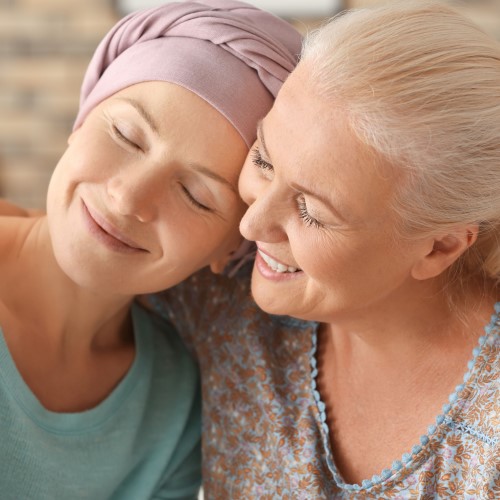06 April 2021
 Every day, nearly 400 new cases of cancer are diagnosed in Australia. As a major cause of illness and a leading cause of death, many of us, sadly, also know someone with cancer.
Every day, nearly 400 new cases of cancer are diagnosed in Australia. As a major cause of illness and a leading cause of death, many of us, sadly, also know someone with cancer.
But understanding what cancer survivors may go through is less well-known, especially when it comes to cognitive side-effects such as ‘cancer-brain’, a condition that can severely decrease memory, processing, decision-making, and attention.
As part of a new UniSA research project, PhD candidate, Daniel Coro and Associate Professor Amanda Hutchinson have identified that many cancer survivors have experienced severe emotional consequences as a result of 'cancer brain' and that greater awareness, understanding and compassion can help allieviate this stress.
Ahead of World Health Day on 7 April 2021, it’s a timely reminder for us all.
“A person’s ability to think is vital – it’s an essential part of who they are and how they understand and interact with the world – but for a cancer survivor, this ability is often stripped away, leaving them feeling cognitively deficit,” Coro says.
“Such cognitive declines can present as ‘fogginess’, losing your train of thought, or even an inability to follow a conversation as quicky as they once could, making day-to-day living challenging.
“In this research we looked at the experiences of ‘cancer-brain’ for survivors and what it meant to them, finding that the emotional impact consequences significantly impacted their sense of identity.
“Some survivors reported that they felt worried and uncertain, and that they no longer felt that they fitted in. This was particularly prominent when engaging in conversations where they felt like they couldn’t keep up and that people got frustrated with a perceived lack of attention.
“Others said that they felt guilt, sadness, anger and frustration about their changed cognition.
“Most survivors revealed how support and understanding from friends, family and people in the workplace were pivotal in coping with these changes. Concerningly though, several survivors voiced instances where flippant responses from both medical practitioners and work colleagues – about how they should be ‘lucky to be alive’ – had left them feeling dismissed and invisible.”
Assoc Prof Hutchinson says it’s important for people to have empathy for cancer survivors, not only because of their condition and diagnosis, but also because of the long-lasting impacts of cancer on cognition.
“For most cancer survivors, ‘cancer-brain’ tends to improve over time, however, greater awareness of the condition is needed,” Assoc Prof Hutchinson says.
“While there is no single approach to supporting someone with ‘cancer-brain’, survivors say that a little patience, compassion, and validation from others can go a long way – you never know, you could just be changing someone’s life for the better.”
Notes to editors:
Quotes from cancer survivors about ‘cancer-brain’:
- “Sometimes I feel like people look at me as if there’s something wrong, because I just stop talking. Umm, for me personally, I’ve always been a talker, and I’ve always been very knowledgeable, and now I feel like I’m…there’s something missing.”
- “It impacts significantly on your, your confidence and then that kind of bores into your self-esteem…thinking that you were incredibly capable of multitasking and doing things, and then suddenly, not just your health is affected but there’s things that you didn’t even think would be affected.
- “…when people aren’t patient with you, the interaction can be less than kind. Umm, you know, you might…find yourself in more…conflicting situations than you were before, because you’re, you’re frustrated with your inability, they’re frustrated with your inability. Umm, so, yeah, it sort of…there’s nothing positive that’s come out of it, put it that way.”
- “I spoke to my oncologist and my GP and they just shrugged their shoulders and say “well, you know, you’re lucky to be alive”, so, you know, what else do you say?”
- “A lot of people have an expectation, particularly in the workplace, that the minute you front up for work again, that life is the same that it used to be…Yep, and it doesn’t happen.”)
…………………………………………………………………………………………………………………………
Media contact: Annabel Mansfield T: +61 8 8302 0351 M: +61 417 717 504
E: Annabel.Mansfield@unisa.edu.au
Researchers: Daniel Coro T: +61 8 8302 1968 E: daniel.coro@mymail.unisa.edu.au
Associate Professor Amanda Hutchinson T: 8302 44688 E: Amanda.Hutchinson@unisa.edu.au



